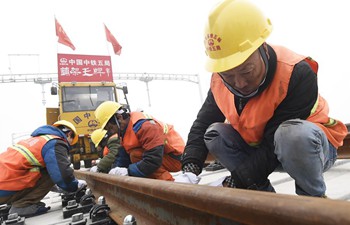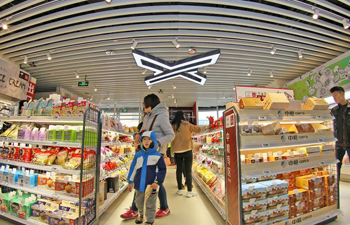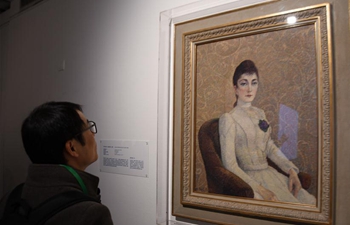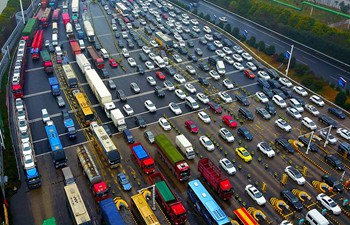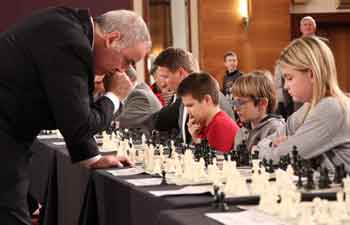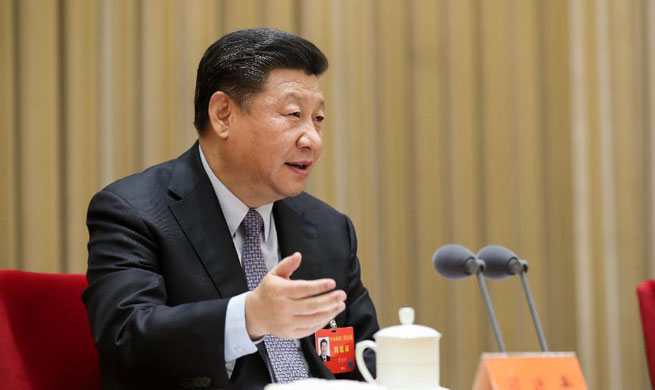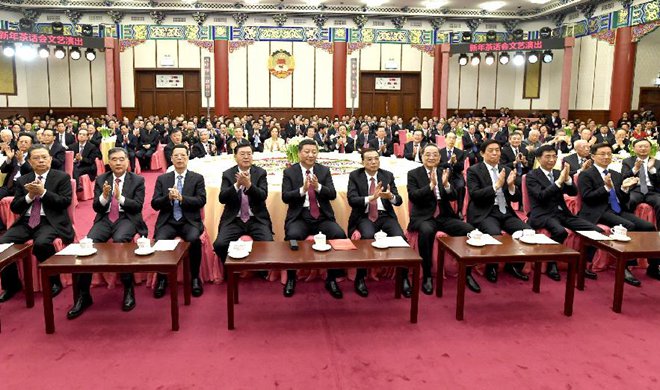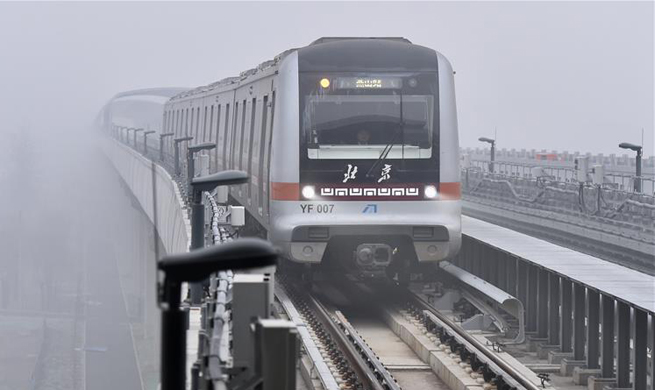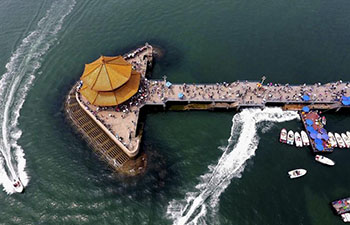MOSUL, Iraq, Dec. 30 (Xinhua) -- Climbing through the endless ruins of collapsed buildings with difficulty, Euthman finally reached his house near the al-Nuri Mosque in the Old City of western Mosul.
But to his disappointment, the old house was severely damaged by mortar shells.
"It will take a long time for me to clean and repair my home. Maybe after that, my family can come back," he said.
"I can still smell the body of the dead under the collapsed buildings, and that reminds me of the terrifying days under the rule of the extremists," said Euthman.
The rule of the Islamic State (IS) group ended on July 10 when Iraqi Prime Minister Haider al-Abadi declared the full liberation of Mosul.
But since the defeat of the IS, little hope was restored in Mosul's Old City, which used to be a flourishing heart zone in Iraq's northern business hub.
At the central part of Old City, the al-Nuri Mosque with its famous minaret was still buried in ruins, just as it was like six months ago when Iraqi army liberated this area.
This mosque is regarded as a landmark building or a symbol of Mosul, and it was in this mosque that extremist leader Abu Bakr al-Baghdadi announced the establishment of an Islamic caliphate in July 2014, but it was destroyed by IS at the end of June 2017 when the militants found their defeat inevitable.
The major road outside the mosque was cleared, but the debris of the main building and the minaret has not been dealt with. The green dome of the main building was the only leftover that can help visitors identify it.
Scars of war were not only borne in the collapsed buildings and mosques, but also in people's mind.
A local volunteer told us that only few residents have returned their homes in the Old City because current conditions are far from good enough for people to make a living.
Mohammed Badrany, a shop owner in al-Arbeiya market has been very busy repairing his shop after he returned from eastern Mosul a few weeks ago.
"Six months has passed and a new year is coming, but we did not get any help from neither the central government nor the local government," said Badrany at his shop, with his face covered with dust. "We did not see progress in the reconstruction of our market."
"We can rely on ourselves and clear our own shops, but we cannot clear and rebuild the whole city," he added.
Badrany's words were echoed by his neighbor Abu Saleh, who has worked together with Badrany to clear nearly 50 shops.
"We have cleared more than 10 tons of wreckages, but we have about 500 shops here in this market," said Saleh. "To clean all this area and resume business, we cannot do it without the support of government."
"At least the government should provide clean water and electricity for us. Life must not stop in Mosul," said Saleh.
"I heard that the central government promised billions of money for the reconstruction, but that money has never reached our hand," added Saleh.
In his speech announcing the final victory of the war against IS, Abadi said that there will be no place for corruption in Iraq, like there is no place left for IS.
Analysts say that Iraq must get rid of corruption and improve the governance ability of all government institutions in order to dry out the resources that feeds the extremism and stop the resurgence of terrorism.
Saleh's 10-year-old son Zakariya returned his home with his family ten days ago. When his father and elder brothers clean their shop in the market, he always came with them and tried to give them a hand.
"Life was too hard and scary in the past few years. I hope my family can live a peaceful life in the New Year. No more fight." Zakariya said.




